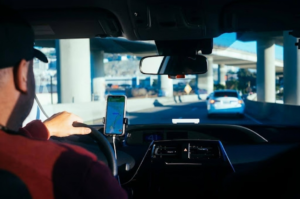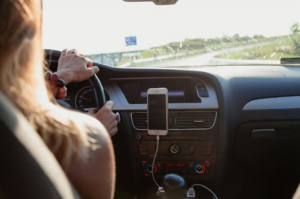What happens when an Uber ride doesn’t go as planned? Understanding the intricacies of Uber accidents and liability is crucial for anyone who drives for a ridesharing service. This post explores the fundamental aspects of Uber accidents, the responsibilities involved, and what steps you should take if you find yourself in one of these situations.

What Happens During an Uber Ride Gone Wrong
Unlike traditional car accidents, which typically involve only the drivers and their insurance companies, Uber accidents introduce additional parties. According to a reputable San Diego uber accident lawyer, these include the driver-partner, Uber as a company, and the rideshare passenger, each with specific roles and potential liabilities. Uber generally categorizes its drivers as independent contractors rather than employees, which affects how liability is determined. This distinction can complicate matters when deciding who is responsible for damages or injuries. Passengers may not know who to contact or what steps to take immediately following an accident.
Passenger Rights in Uber Accidents
As a passenger, knowing your rights and the protections available to you in the event of an Uber accident is crucial. Uber provides its passengers with specific safeguards through its insurance policies, which help ensure that passengers receive compensation for injuries or other damages sustained during a ride. Uber’s insurance typically includes:
- Liability coverage.
- Uninsured or underinsured motorist coverage.
- Contingent comprehensive and collision coverage.
These policies kick in only under specific circumstances; understanding these conditions is vital for passengers. For instance, Uber’s coverage is usually activated when the app is on and a ride is in progress. Passengers need to recognize the nuances of Uber’s insurance policy to make informed decisions and take appropriate action after an accident. Knowing when and how to file a claim, what documentation is necessary, and what type of compensation passengers are entitled to is essential.
The Role of the Uber Driver
Uber drivers play a central role in the ridesharing ecosystem, but their responsibilities and liabilities can become muddled when an accident occurs. In most cases, Uber drivers are considered independent contractors, which affects how liability is distributed between them, Uber, and other parties involved in the accident. Understanding the driver’s perspective is essential for both drivers and passengers.
Drivers need to know their insurance requirements, such as maintaining a personal auto insurance policy that meets state minimum coverage levels. They should also remember that Uber only provides contingent liability and collision coverage when the app is active. Knowing how to handle an accident, from reporting it to Uber to coordinating with insurance representatives, is crucial for drivers in maintaining their livelihood and legal standing. Passengers, on the other hand, benefit from understanding their drivers’ obligations, as this knowledge can assist them in navigating the aftermath of an accident.
Uber’s Insurance Policy Explained
Uber’s insurance policy is a complex web of coverage designed to protect drivers and passengers under various circumstances. When a driver is “offline,” Uber provides no coverage. However, once the app is on and a driver is waiting for a ride request, Uber offers limited liability coverage. This coverage increases significantly once the driver accepts a ride and is en route to pick up a passenger or transport them. Understanding Uber’s insurance coverage is paramount for all parties involved in a ride.
Legal Implications for Uber Accidents
The legal landscape for Uber accidents can be daunting, given the relatively new nature of ridesharing services and the evolving laws governing them. Determining liability, calculating damages, and navigating insurance claims come with unique challenges in these cases.
Various factors influence the legal process, including the drivers’ classification as independent contractors, the applicability of Uber’s insurance, and state-specific regulations. These elements can all impact how an accident claim proceeds and the outcomes.
Steps to Take After an Uber Accident
Prompt action, thorough documentation, and clear communication are vital to protecting your rights and securing appropriate compensation. Immediately after an accident, ensure your safety and check for injuries. If necessary, call emergency services for medical assistance. Reporting the accident to Uber and your insurance company is also crucial. Maintaining open communication and following up with all relevant parties can help resolve any issues promptly.
Common Challenges in Uber Accident Claims
Knowing how to address obstacles, from determining fault to dealing with insurance coverage issues, can save time and frustration. One common challenge is establishing who is liable for the accident, as ridesharing incidents often involve multiple parties. Another issue is navigating Uber’s multi-tiered insurance coverage, which can vary based on the driver’s status at the time of the accident. Understanding and learning how to overcome these challenges are essential for anyone with an Uber accident claim.
The Impact of Local Laws and Regulations
Local laws and regulations significantly affect how Uber accidents and liability are handled. Different jurisdictions may have varying requirements for insurance coverage, accident reporting, and driver classification, all of which can affect the outcome of a rideshare-related incident. For example, some states mandate higher insurance coverage levels for rideshare drivers, while others may have stricter liability standards. Understanding how these local regulations impact your case can provide valuable context and guide your actions following an Uber accident.
The Future of Rideshare Insurance
As ridesharing services continue to grow and evolve, so does the insurance landscape surrounding them. Technological advancements, regulatory changes, and shifting consumer expectations contribute to developing new insurance models tailored to the needs of rideshare users and providers. One trend is the emergence of usage-based insurance policies, which offer coverage based on a driver’s actual time on the road.

Understanding Uber accidents and liability is essential for anyone who participates in the ridesharing ecosystem, whether as a passenger, driver, or concerned third party. By grasping the complexities of rideshare incidents and the legal frameworks surrounding them, you can better protect yourself and make informed decisions in the event of an accident. For those looking to deepen their understanding of rideshare-related issues, consider consulting legal professionals or insurance experts to explore further resources. By staying informed and proactive, you can ensure a safer and more secure experience within the ridesharing world.



